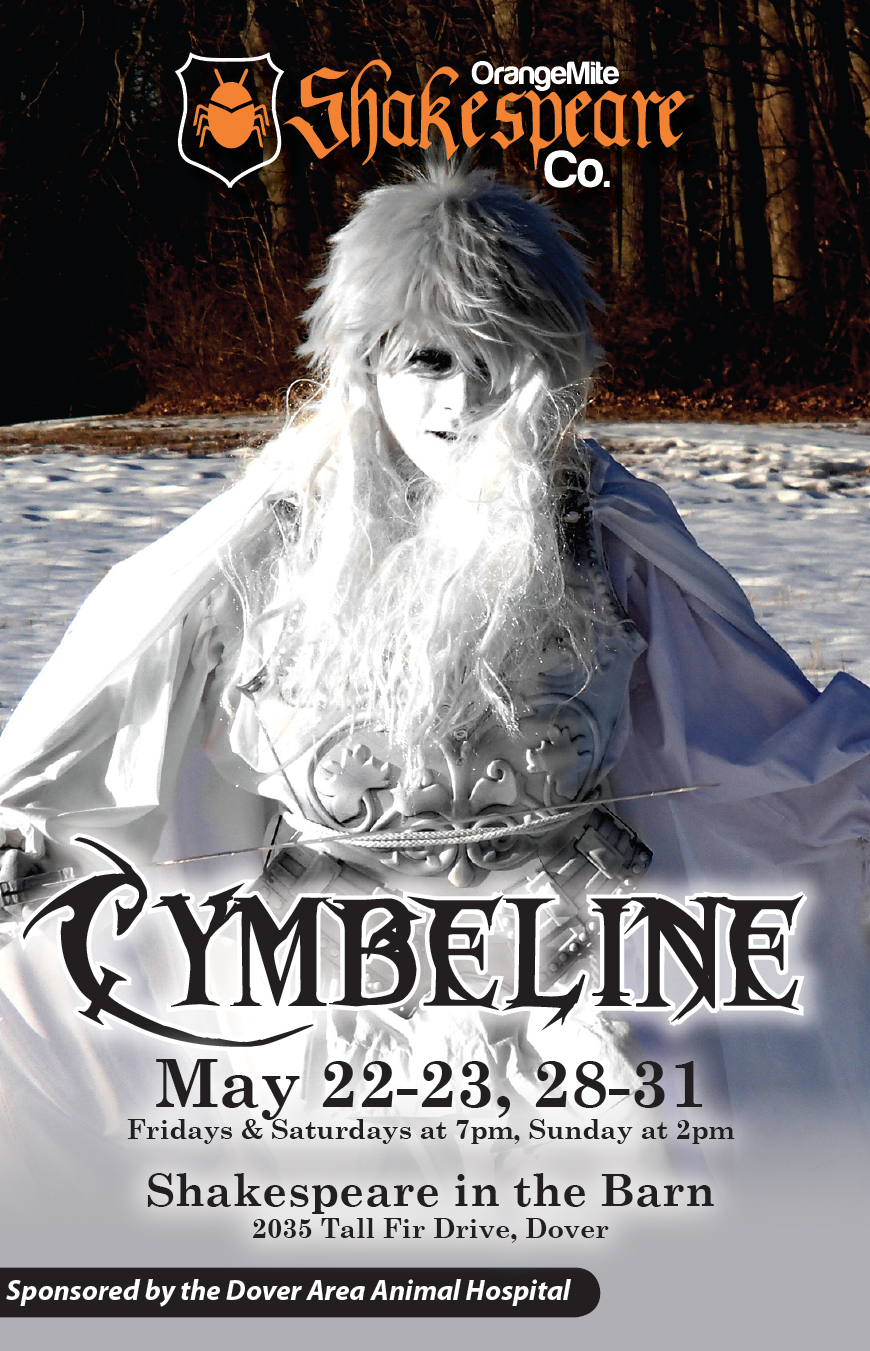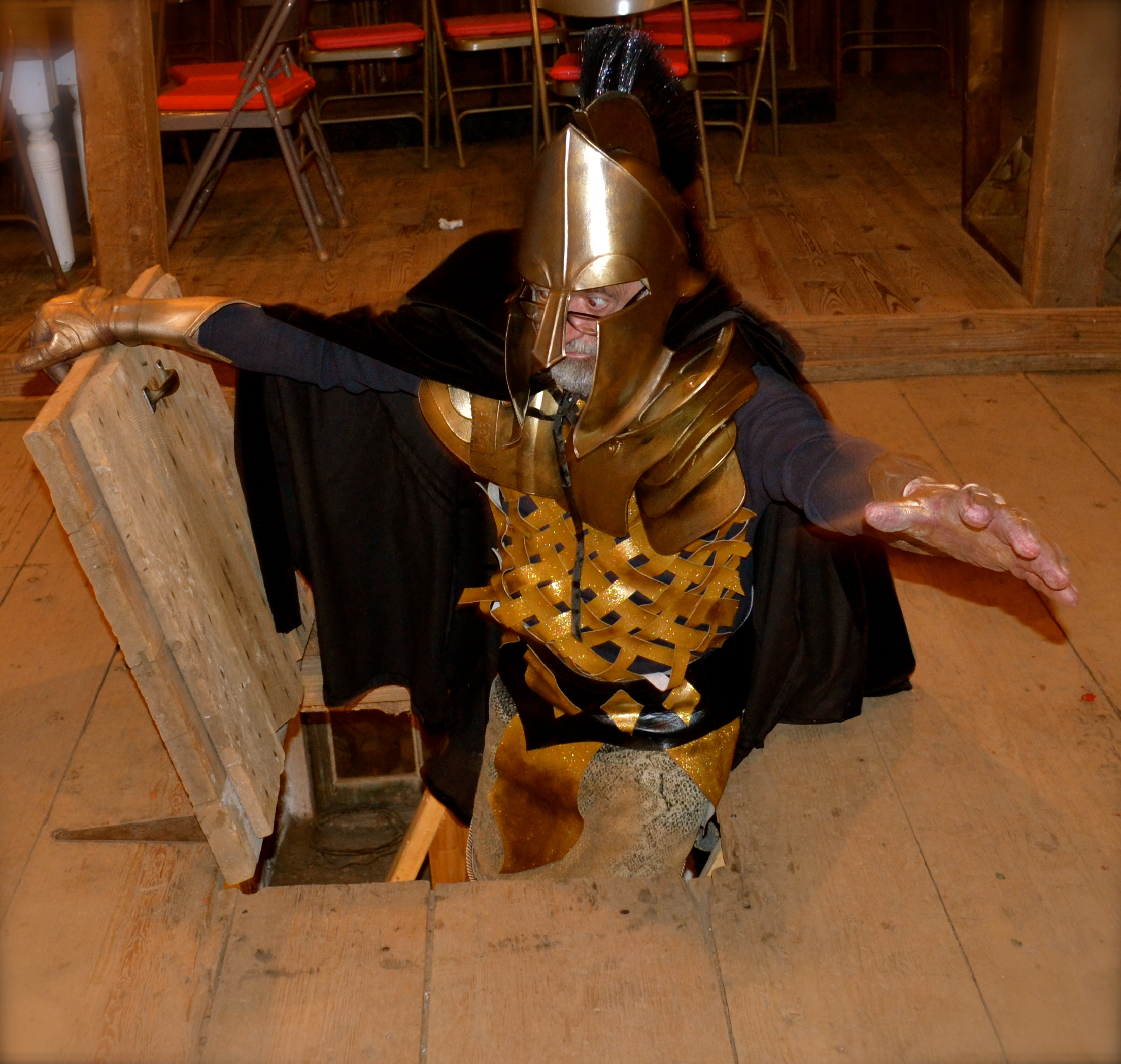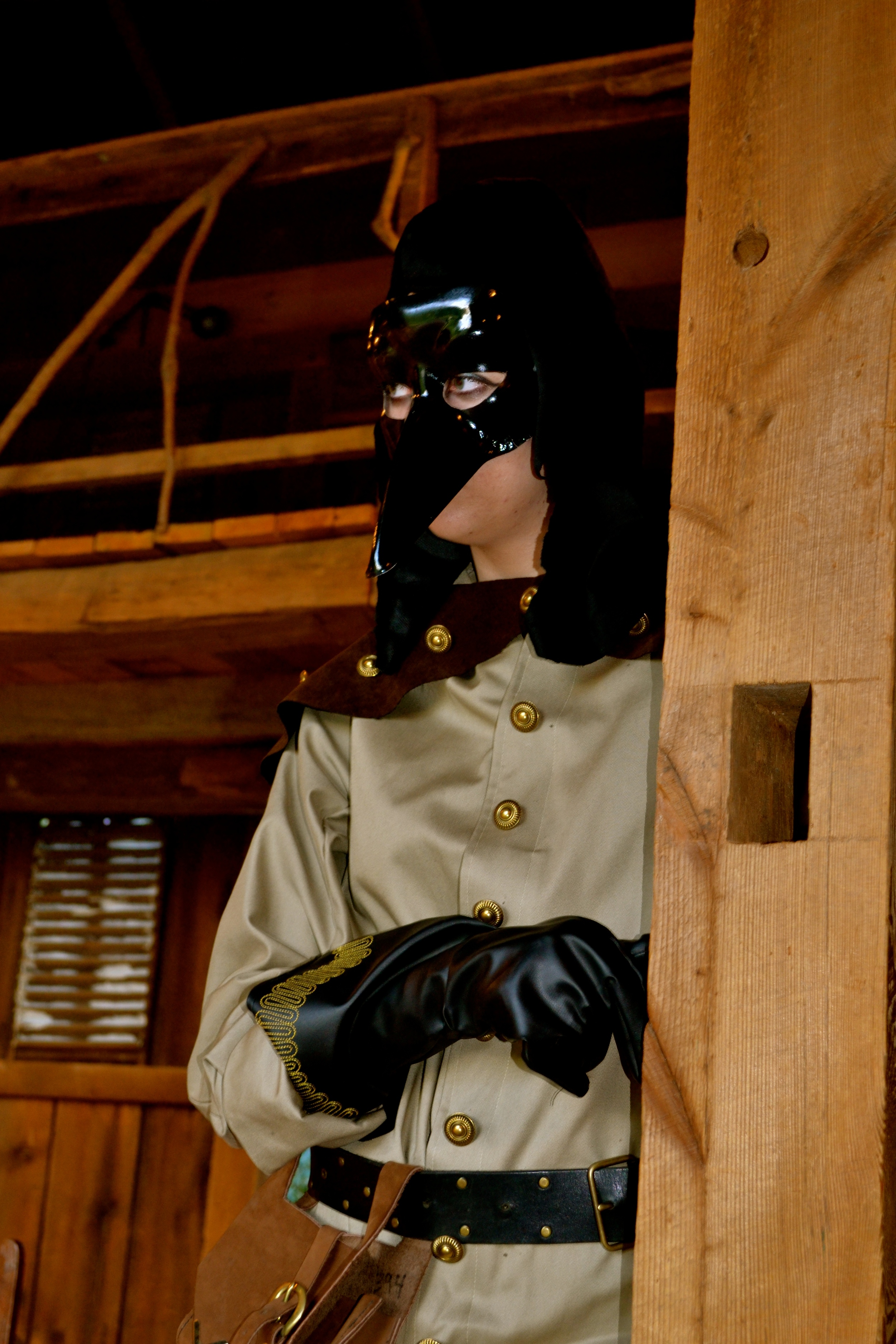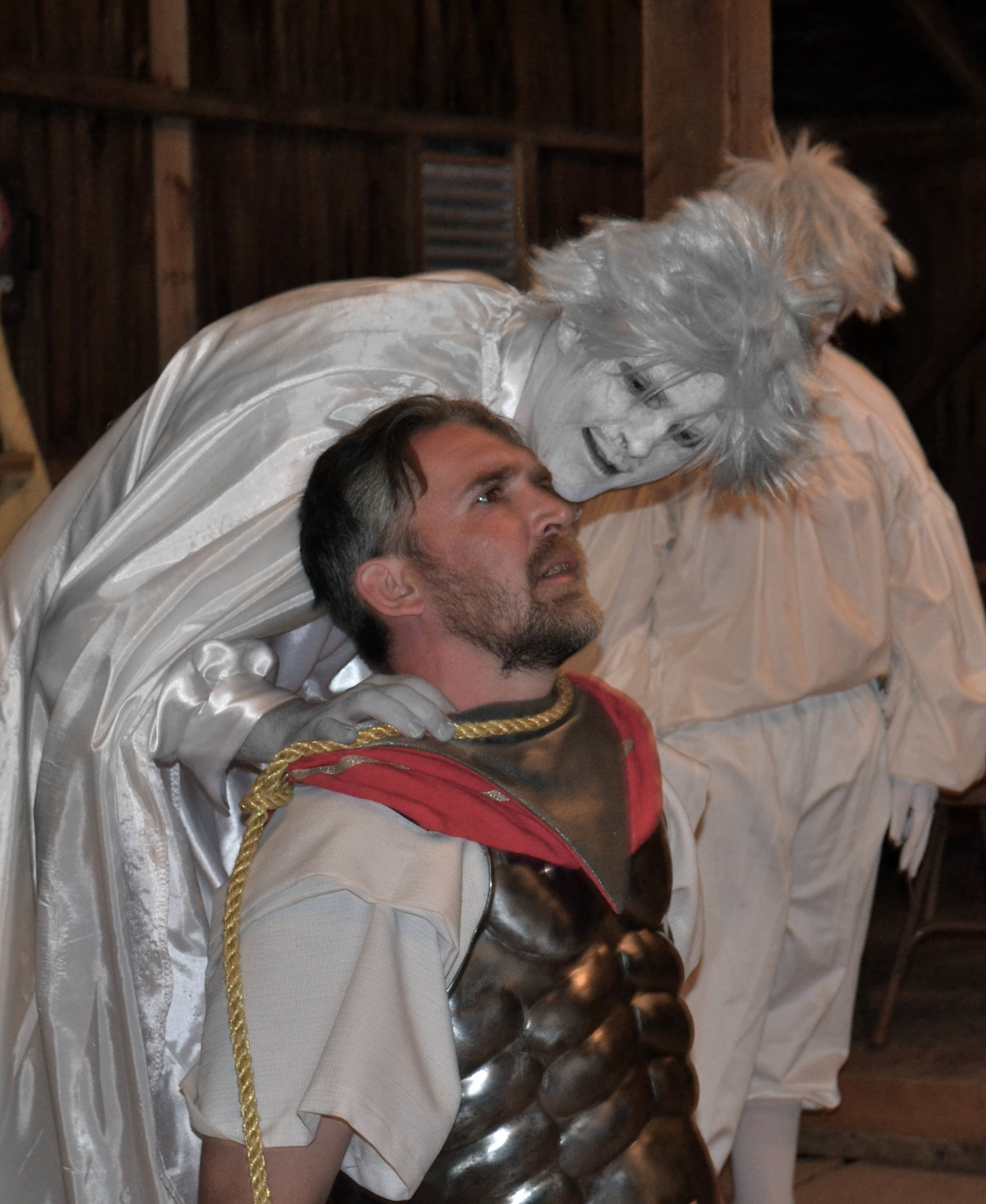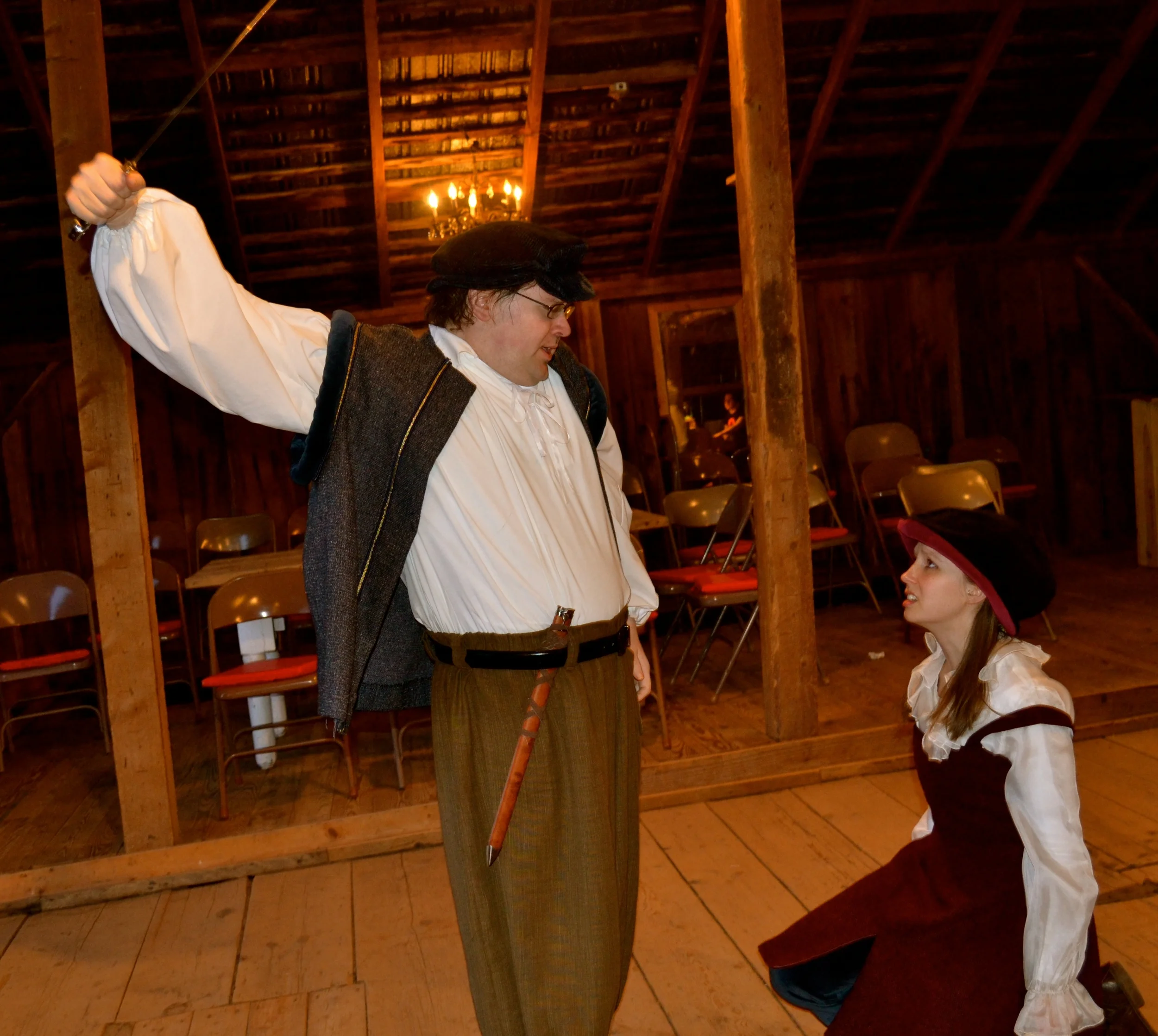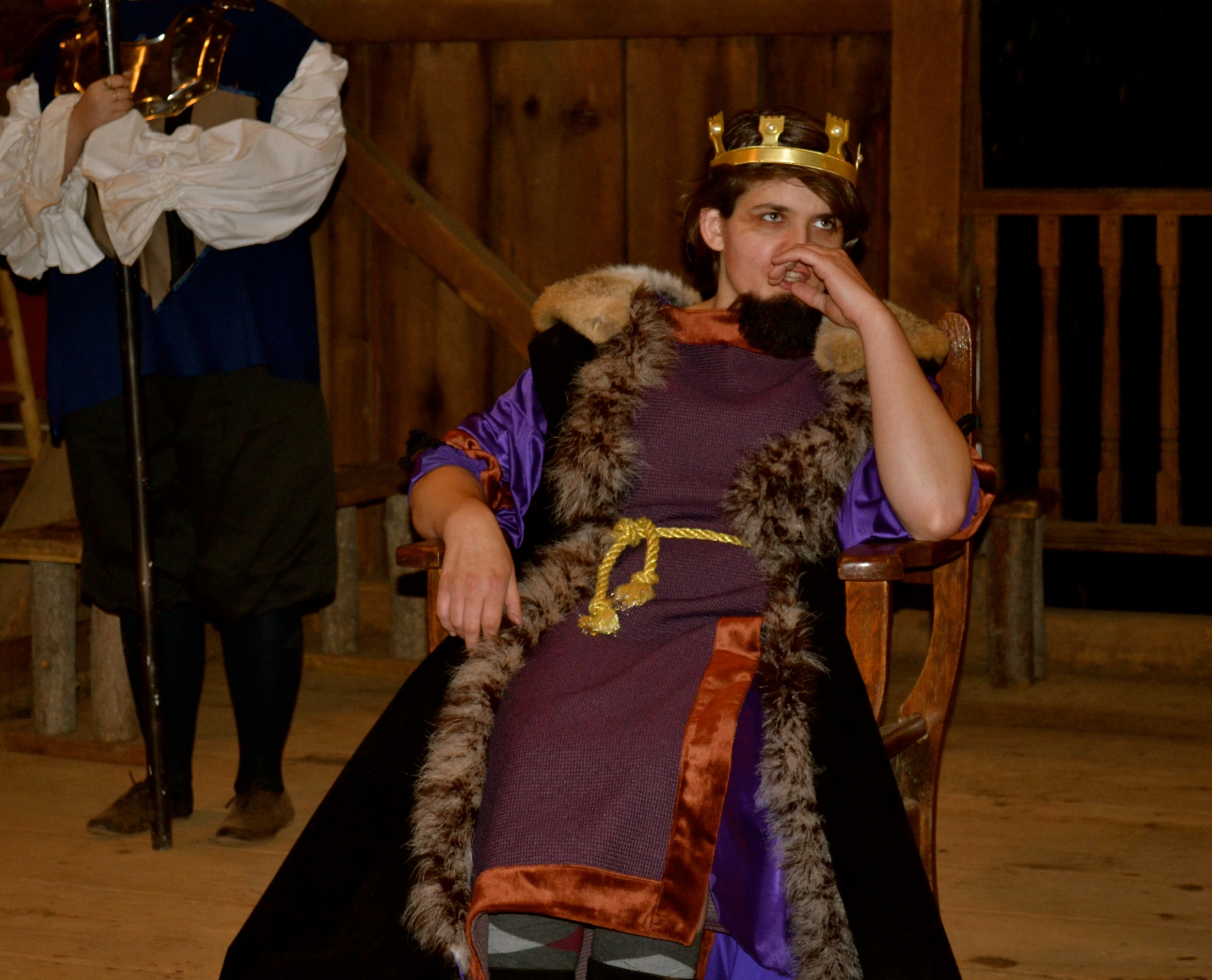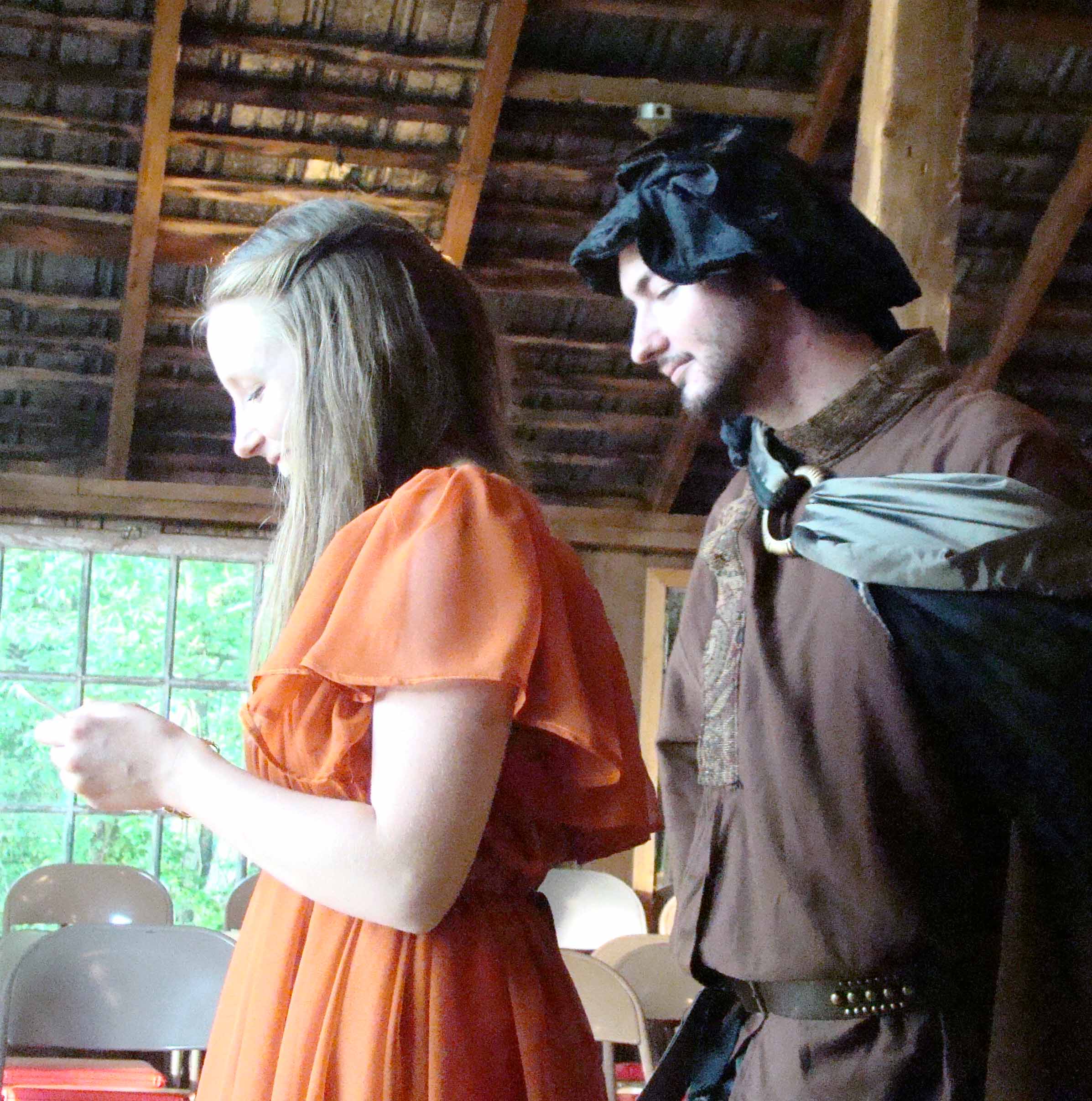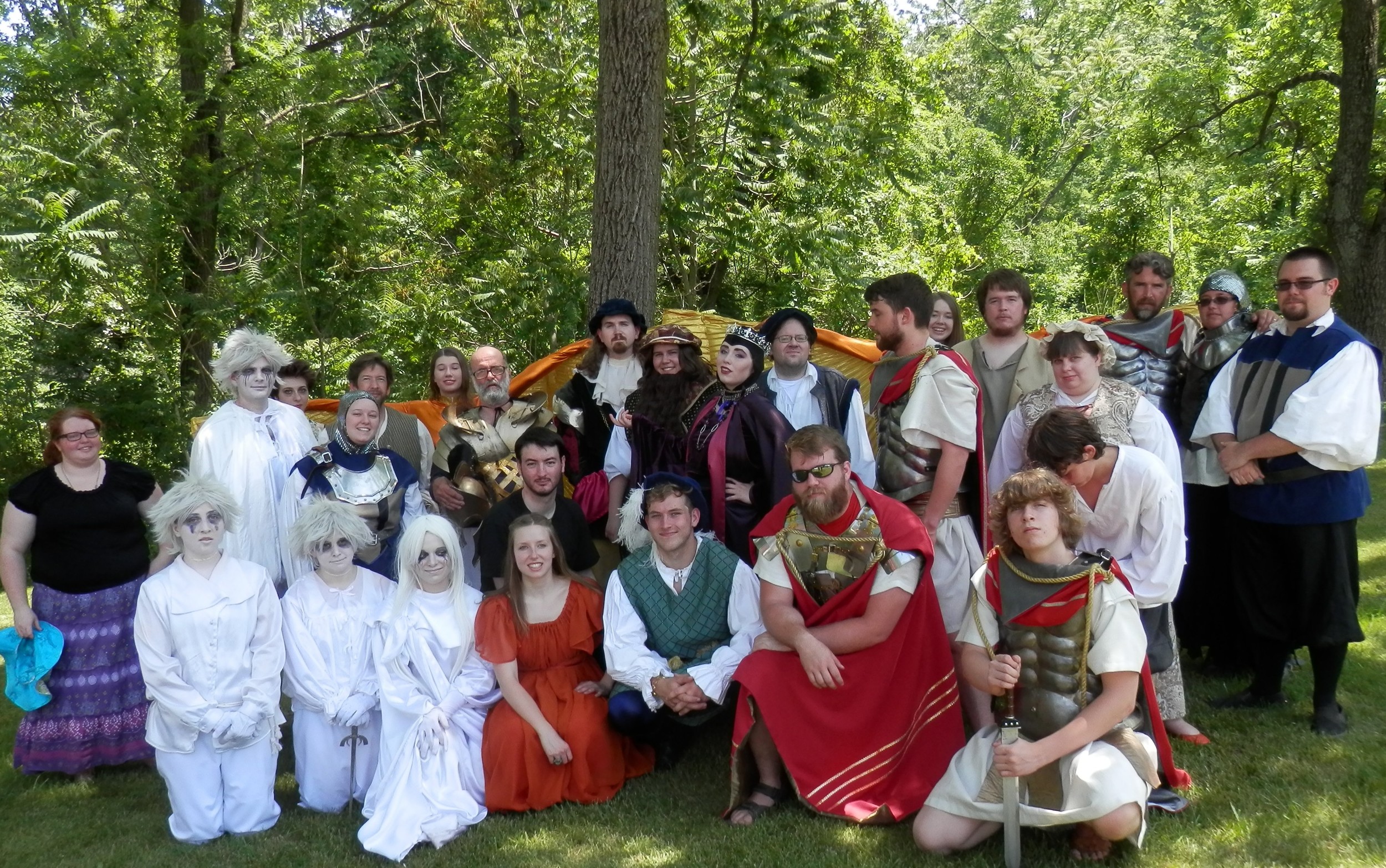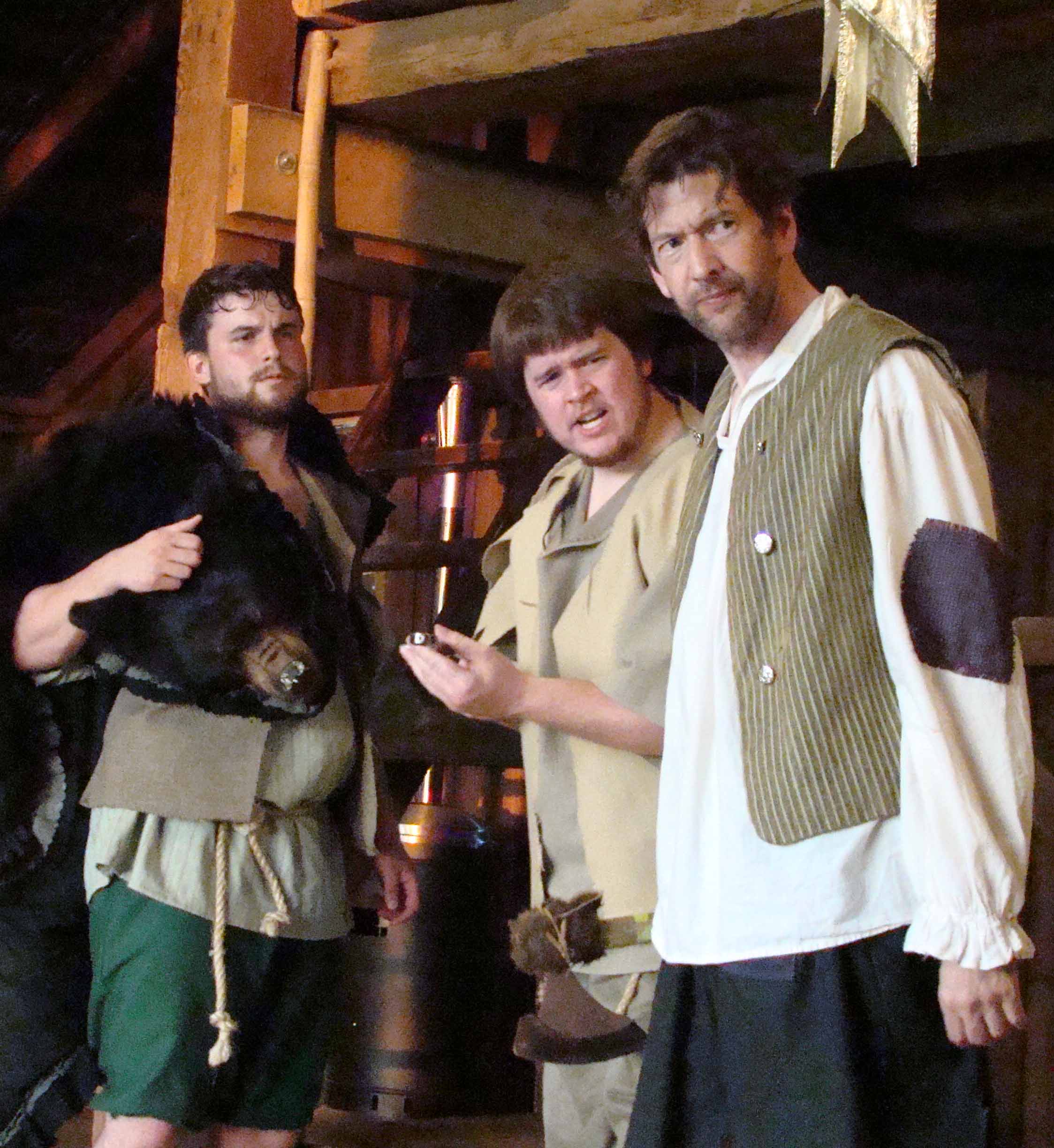CYMBELINE
MAY 2015, Directed by William Wolfgang
“The dream’s here still: even when I wake, it is
Without me, as within me; not imagined, felt.”
In May 2015, Shakespeare’s neglected masterpiece took OrangeMite audiences to a world occupied by ghosts, gods, and other supernatural beings. Cymbeline defied classification for hundreds of years, mystifying both scholars and critics alike, and OrangeMite’s emotional production filled with dark comedy was no exception. Infused with motives from Frédéric Chopin’s piano works, the tangled stories of loss and remarkable reconciliation resonated anew in this Shakespeare in the Barn production.
DIRECTOR'S NOTES
Cymbeline is a play that has continually defied classification for centuries. This bothers some, and it excites others. Personally, I find it to be the latter. I always enjoy producing Shakespeare’s most obscure work, and I find that many of the participants here at OrangeMite would agree with me. There is something invigorating about finding a new way to tell a story that most people don’t get the opportunity to ever see.
Also, we have the exciting benefit of suspense. What’s going to happen? While most people know what’s going to happen at the end of Romeo and Juliet, not many people conjure up the conclusion of Cymbeline on command. Many of our actors experienced this as well coming into this play; during the read-through we were baffled by the intricacies of the plot and the sudden twists and turns. When writing Cymbeline, Shakespeare included many of the qualities of the well-known plays (cross-dressing heroines, mysterious potions, banished lovers, etc.), yet this text remains truly unique on so many levels. Our rehearsal process was filled with many laughs, fun theories, and epic battles. This was all mixed into one remarkable and unclassifiable Shakespearean fairy tale.
While you could look at this play and pick out countless themes. I chose to focus on a very difficult and sometimes intangible theme for the stage: family. Cymbeline has more family relationships in it than any other play I’ve worked on. You have Cymbeline and his daughter, and his second wife, his daughter’s step-mother, and that’s just for starters. You also have the Leonatus family, one alive and four dead, Shakespeare showing that the idea of family is something that extends beyond this mortal world. Of course, then there is Belarius living in the wilderness with his adopted sons, demonstrating yet another manifestation of family. However, these are just overtly obvious examples. This play is littered with references to the power and transcendence of family in its broadest sense. Shakespeare makes it very clear that it is one of humanity’s most redeeming qualities, inspiring forgiveness, empathy, and solidarity.
A powerful line near the end of the play exemplifies many of these qualities:
“Kneel not to me:
The power that I have on you is, to spare you;
The malice towards you to forgive you: live,
And deal with others better.”
Living is a privilege not granted to all at the end of Shakespeare’s plays. The above passage is only one of the many reasons that Cymbeline has been unclassifiable for hundreds of years: revenge is declined. I’ll let it up to you to decide why.
William Wolfgang, Director
CHECK OUT CLIPS OF THE PRODUCTION ON ORANGEMITE'S YOUTUBE CHANNEL!
Ryan Szwaja as Guiderius and Jamin Miller as Cloten.






